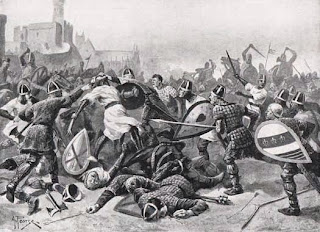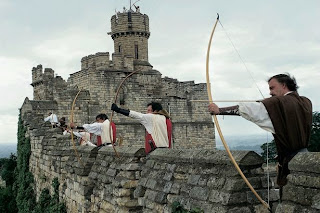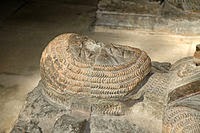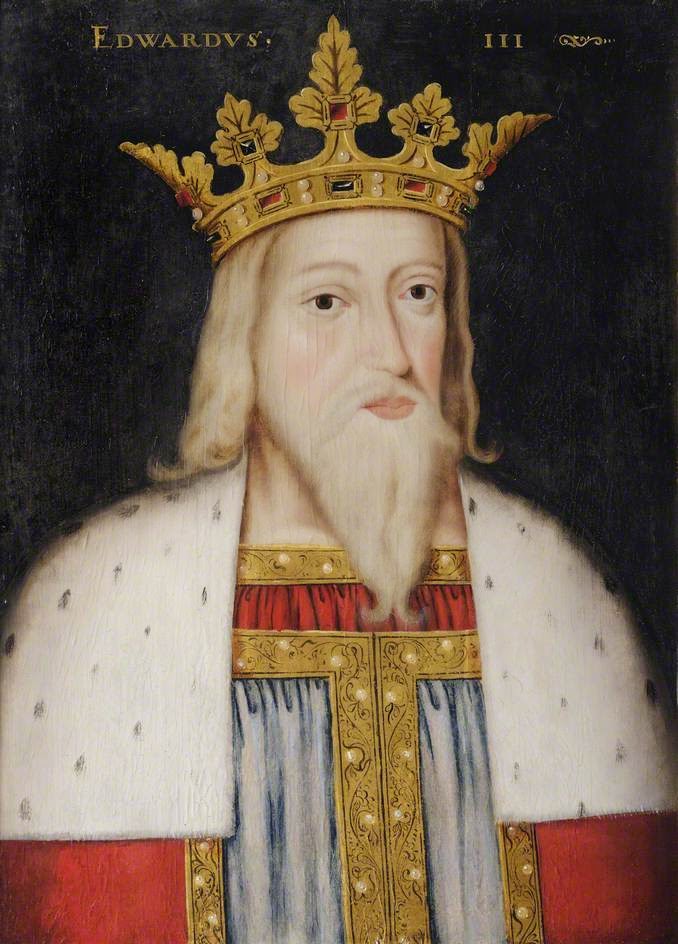The 20th of May 1217 AD The Second Battle of Lincoln
The Second Battle of Lincoln is battled close Lincoln, England, bringing about the annihilation of Prince Louis of France by William Marshal, 2nd Earl of Pembroke
Subsequent to King John reneged on Magna Carta, the nation fell into a common war for about 2 years, isolated between aristocrats as yet supporting the crown and renegade nobles who then welcomed Prince Louis, the child of the French King, to take the English throne.
 |
The fight which occurred in and around the city of Lincoln on May 20 1217 likely decided the fate of the English crown. Ruler Louis of France (later Louis VIII) had set up a base in Southern England with the backing of aristocrats resolved to remove King John . John passed on in October 1216, and his child consequently succeeded him as Henry III . Anyway, as a kid of eight his position was unstable.
John's passing changed the political scene: a few nobles fulfilled by his way out returned to supporting his child. Louis, officially blockading Dover Castle , extended his powers by endeavoring to take Lincoln, a noteworthy city and key toward the North.
After the fight Lincoln instead of having the capacity to celebrate was looted, the reason being gathered cooperation with the French, an occasion history reviews as 'Lincoln Fair'. Anyhow, whatever is left of England could cheer that the risk of proceeding with fighting was successfully finished; Louis soon withdrew to France.
By May 1217, King John was dead and his child, Henry III, was just a tyke with William Marshal going about as official. The city of Lincoln had been taken by the consolidated French and dissident English powers, however Lincoln Castle waited for the royalist cause under the summon of the woman constable, Nicola de la Hay.
There was a counter assault by the royalist armed force amid which the royalists figured out how to ease the château. There took after wild battling between the château's East Gate and Lincoln Cathedral. At the point when the French authority was murdered the French and English rebels fled down the slope. The Royalists asserted triumph and in quest for those withdrawing sacked the town, offering ascent to the writer's epithet for the fight, the Battle of Lincoln Fair.
This fight was of national noteworthiness. In the event that the Royalists had lost, England would have turn out to be a piece of France.
 |
| LITTLE SCENES OF BATTLE |
The contemporary writer, Roger of Wendover, portrayed the plundering of Lincoln by the ruler's officers after the fight.
 |
| CASTLE OF LINCOLN |
RESULT OF BATTLE
Lincoln Castle was the site of a fight on 20th May 1217. The conflict occurred amid the First Barons' War between the strengths without bounds Louis VIII of France and those of King Henry III of England. Louis' powers were assaulted by an alleviation compel under the charge of William Marshal, the first Earl of Pembroke. The Comte de la Perche, charging the French troops, was murdered and the annihilation prompted Louis being removed from his base in the south-east of England.
The manor was harmed amid the seige and was repaired amid the early years of Henry III's rule
INTRODUCTION TO William Marshal, 1st Earl of Pembroke life
William Marshal was the english trooper and statesman.Stephen Langton praised him as the "best knight that ever lived." He served four rulers – Henry II, Richard I, John, and Henry III – and rose from lack of clarity to turn into an official of England for the remainder of the four, thus a standout amongst the most effective men in Europe. Before him, the inherited title of "Marshal" assigned head of family security for the ruler of England; when he kicked the bucket, individuals all through Europe (not simply England) alluded to him basically as 'the Marshal'. He got the title of '1st Earl of Pembroke' through marriage amid the second making of the Pembroke Earldom.
EARLY LIFE ( childhood)
William's dad, John Marshal, bolstered King Stephen when he took the throne in 1135, yet in around 1139 he changed sides to back the Empress Matilda in the common war of progression in the middle of her and Stephen which prompted the breakdown of England into "the Anarchy".
At the point when King Stephen attacked Newbury Castle in 1152, as per William's biographer, he utilized the youthful William as a prisoner to guarantee that John stayed faithful to his obligation to surrender the manor. John, in any case, utilized the time assigned to strengthen the manor and caution Matilda's strengths. At the point when Stephen requested John to surrender promptly or William would be hanged, John answered that he ought to proceed saying, "despite everything I have the sledge and the iron block with which to fashion still more and better children!" Subsequently there was a feign made to dispatch William from a pierrière, a kind of trebuchet towards the château. Luckily for the youngster, Stephen couldn't force himself to damage youthful William. William remained a crown prisoner for a long time, just being discharged after the peace that came about because of the terms concurred at Winchester on 6 November 1153 that finished the common war.
Knight-Errant
As a more youthful child of a minor aristocrat, William had no terrains or fortune to acquire, and needed to make his own specific manner in life. Around the age of twelve, when his dad's profession was vacillating, he was sent to Normandy to be raised in the family unit of William de Tancarville, an incredible financier and cousin of youthful William's mom. Here he started his preparation as a knight. This would have included fundamental scriptural stories and supplications to God written in Latin, and also introduction to French sentiments, which presented the essential statutes of valor to the growing knight. Moreover, while in Tancarville's family, it is likely that Marshal likewise learned essential and enduring functional lessons concerning the governmental issues of elegant life. As per his thirteenth-century memoir, L'Histoire de Guillaume le Marechal, Marshal had various foes in court who machinated to his burden these people likely would have been undermined by the kid's cozy association with the head honcho. He was knighted in 1166 on crusade in Upper Normandy, then being attacked from Flanders. His first involvement in fight accompanied blended surveys. As indicated by L'Histoire, everybody who saw the youthful knight in real life concurred that he had absolved himself well in battle. Then again, as medieval antiquarian David Crouch clarifies, "War in the twelfth century was not battled entirely for honor. Benefit was there to be made… " On this front, Marshal was not all that fruitful, as he was not able to parlay his battle triumphs into benefit from either deliver or seized goods. As depicted in L'Histoire, the Earl of Essex, who was expecting the standard tribute from his valorous knight taking after fight, facetiously commented: "Really? At the same time, Marshal, what are you saying? You had forty or sixty of them—yet you decline me so little a thing!" In 1167 he was taken by William de Tancarville to his first competition where he discovered his actual métier. Stopping the Tancarville family he then served in the family of his mom's sibling, Patrick, Earl of Salisbury. In 1168 his uncle was murdered in a trap by Guy de Lusignan. William was harmed and caught in the same conflict. It is realized that William got an injury to his thigh and that somebody in his captor's family unit took feel sorry for on the youthful knight. He got a roll of bread in which were covered a few lengths of clean material swathes with which he could dress his injuries. This demonstration of generosity by an obscure individual maybe spared Marshal's life as disease setting into the injury could have executed him. After a time of time, he was delivered by Eleanor of Aquitaine, who was clearly awed by stories of his valiance. From there on he discovered he could bring home the bacon out of winning competitions. Around then competitions were unsafe, regularly fatal, arranged fights, not the jousting challenges that would come later, and cash and profitable prizes could be won by catching and delivering rivals, their steeds and shield. His record is incredible: on his deathbed he reviewed besting 500 knights amid his tourneying vocation
Royal favour
Amid the old lord's last days he had guaranteed the Marshal the hand and bequests of Isabel de Clare (c.1172–1220), yet had not finished the plans. Ruler Richard be that as it may, affirmed the offer thus in August 1189, at 43 years old, the Marshal wedded the 17-year-old girl of Richard de Clare (Strongbow). Her dad had been Earl of Pembroke, and Marshal gained expansive homes and claims in England, Wales, Normandy and Ireland. A few bequests however were prohibited from the arrangement. Marshal did not acquire Pembroke and the title of earl, which his dad in-law had appreciated, until 1199, as it had been taken into the ruler's hand in 1154. In any case, the marriage changed the landless knight from a minor family into one of the wealthiest men in the kingdom, an indication of his influence and distinction at court. They had five children and five little girls, and have various relatives. William made various enhancements to his wife's territories, including broad increases to Pembroke Castle and Chepstow Castle.
William was incorporated in the chamber of rule which the King named on his takeoff for the Third Crusade in 1190. He took the side of John, the ruler's sibling, when the last ousted the justiciar, William Longchamp, from the kingdom, however he soon found that the premiums of John were not the same as those of Richard. Thus in 1193 he joined with the followers in making war upon him. In spring 1194, throughout the threats in England and before King Richard's arrival, William Marshal's senior sibling John Marshal (who was serving as seneschal) was murdered while protecting Marlborough for the ruler's sibling John. Richard permitted Marshal to succeed his sibling in the genetic marshalship, and his fatherly respect of Hamstead Marshall. The Marshal served the lord in his wars in Normandy against Philip II. On Richard's demise bed the lord assigned Marshal as overseer of Rouen and of the regal fortune amid the interregnum
Passing and legacy
 |
| LAST PLACE |






Comments
Post a Comment